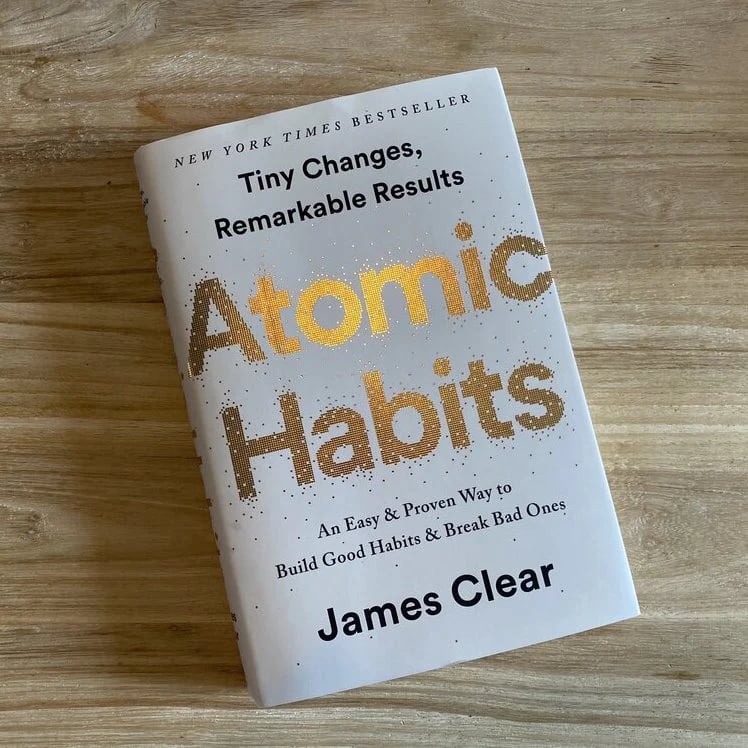Atomic Habits
Habits are the system to change our life
2/5/20253 min read


1% Better Every day
1% worse every day for one year 0.99^345 = 0.03
1% better every day for one year 1.01^345 = 37.78
Figure
The plateu of latent potential
Figure
Forget about goals, focus on systems instead
- Habits are the compound interest of self improvement. Getting 1 peecent better everyday counts for a lot in the long run.
- Habits are double edged sword. They can work for you or against you, which is why understanding the details is essential.
- Small changes often appear to make no difference until you cross a critical threshold. The most powerful outcomes of any compounding process are delayed. You need to be patient
- If you want better results, then forget about setting goals. Focus on your system instead.
- You do not rise to the level of your goals. You fall to the level of your systems.
- There are three levels of change: outcome change, process change, and identity change
- The most effective way to change your habits isbto focus not on what you want to achieve, but on who you wish to become.
- Your identity emerges out of your habits. Every action is a vote for the type of person you wish to become.
- Becoming the best version of yourself requires you to continuously edit your beliefs, and to upgrade and expand your identity
- The real reason habits matter is not because they can get you between results, but they can change your beliefs about yourself
- A habit is a behaviour that has been repeated enough times to become automatic
- The ultimate response of habits is to solve the problems of life with as little energy and effort as possible
- Any habit can be broken down into feedback loop that involves four steps: cue, craving, response and reward
- The Four laws of Behavior change are simple set of rules we can use to build better habits. They are (1) make it obvious, (2) make it attractive, (3) make it easy and (4) make it satisfying
The 1st law - Make it obvious
- With enough practice, your brain will pick up on the cues that predict certain outcomes without certain outcoemes without consciously thinking about it.
- Once our habits become automatic, we stop paying attention to what we are doing.
- The process of behaviour change always starts with awareness. You need to be aware of your habits before you can change them.
- Pointing and Calling raises your level of awareness from a non conscious habit to a more conscious level by verbalizing your actions.
- The habits scorecard is a simple exercise you can use to become more aware of your behaviour.
- The two most common cues are time and location
- Creating an implementation intention is a stratergy you can use to pair a new habit with a specific time and location
- The implementation formula is : I will [BEHAVIOUR] at [TIME] in [LOCATION]
- Habit stacking is a stratergy you can use to pair a new habit with a current habit
- The habit stacking formula is : After [CURRENT HABIT], I will [NEW HABIT]
-Small changes in context can lead to large changes in behaviour over time
-Every habit is initiated by a cue. We are more likely to notice cues that standout
-Make the cues of good habits obvious in your environments
- Gradually, your habits become associated not with a single trigger but with the entire context surrounding the behaviour. The context becomess the cue
- It is easier to build new habits in a new environment because you are not fighting against old cues.
-The inversion of the 1st law of behaviour change is make it invisilble
- Once habit is formed, it is unlikely to be forgotten.
- People with high self control tend to spend less time in
tempting situations. It's easier to avoid temptation than resist it.
-One of the most practical ways to eliminate a bad habit is to reduce exposure to the cue that causes it.
-Self control is a short term strategy, not a long term one.
The 2nd law of behaviour change is make it attractive
- The more attractive an opportunity is, more likely it is to become habit-forming.
- Habits are a dopamine driven feedback loop. When dopamine rises, so does our motivation to act.
- It is the anticipation of a reward - not the fullfillment of it- that gets us to take action. The greater the anticipation, the greater the dopamine spike.
- Temptation bundling is one way to make your habits attractive. The strategy is to pair an action you want to do with an action you need to do.
-The culture we live in determines which behaviours are attractive to us
- We tend to adopt habits that are praised and approved of by our culture because we have a strong desire to fit in and belong to the tribe.
- We tend to imitate the habits of three social groups:the close(family and friends), the many(the tribe), and the powerful(those with status and prestige)
- One of the most effective things you can do to build better habits is to join a culture where(1) your desired behaviour is the normal behavior and (2) you already have something in common with the group.
- The normal behaviour of the tribe often overpowers the desired behaviour of the individual. Most days, we'd rather be wrong with the crowd than be right by ourselves.
- If a behaviour can get us approval, respect, and praise, we find it attractive.
